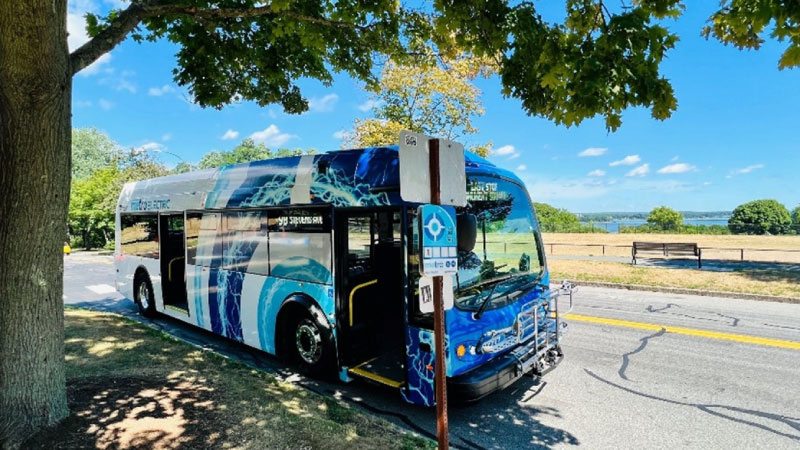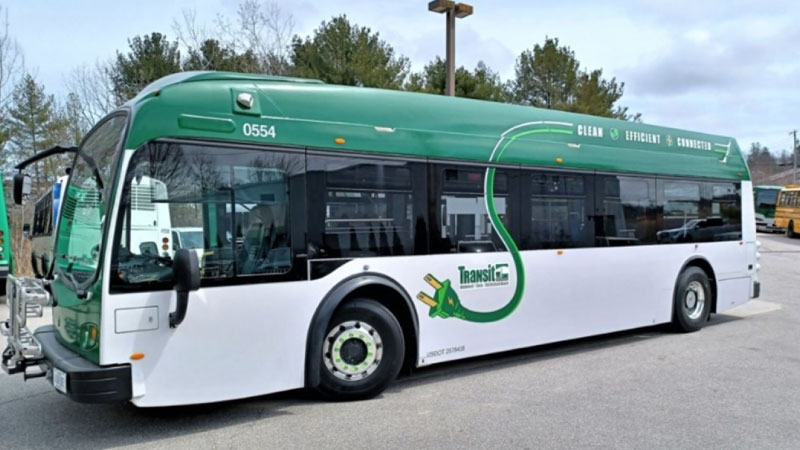When procuring zero-emission buses, there’s strength in numbers
This is particularly true for smaller transit agencies that lack the staff, funding, and resources to convert to zero-emission buses (ZEBs). Such vehicles can cost twice as much as their diesel counterparts and require additional, expensive infrastructure, such as electrical charging and/or hydrogen fueling stations. And, while there is a lot of federal money available for net-zero transit – nearly $1.7 billion in the US, and $2.75 billion in Canada – securing funding can be a difficult, complex process.
That said, state and provincial transportation departments in the US and Canada have been helping smaller agencies by encouraging regional joint ZEB procurements. The approach has numerous advantages, including:
Acquiring government funding: By pooling resources, smaller agencies can show that their project is collectively more cost-effective and efficient than individual procurements and be competitive with larger entities.
Reducing costs: Administrative contract support translates into roughly 6% of the capital cost of a bus or charging system, therefore having a single contract administrator for multiple agencies results in major cost savings. Furthermore, larger order quantities typically result in cheaper per unit quotes from suppliers.
Increasing vehicle support: Manufacturers are likely to provide better service to clients that make larger purchases.
Peer support: Transit agencies involved in the joint procurement process can share knowledge, information, parts, and even buses if necessary.
Infrastructure sharing: Transit agencies can share electrical charging and hydrogen fueling stations to reduce both capital and operating expenditures.
In 2021, the Department of Transportation in Maine (MaineDOT) and two transit agencies in the state, recognized the benefits of collaboration and joint procurements and completed the purchase of four electric buses and supporting charging infrastructure. The pilot project was a success, so MaineDOT expanded the program to include every transit agency in the state. To implement this plan, the DOT selected Hatch to develop feasible pathways for every agency in the state to transition to either hybrid or battery electric technologies.


Hatch developed transition plans for each agency specific to their operating environments and local requirements. We also developed a statewide procurement plan that organized all capital orders into clusters to encourage collaboration and allow transit agencies throughout the state to realize the benefits mentioned above. Finally, we authored grant applications on behalf of the state to secure funding and move the statewide initiative forward.
Hatch has assisted numerous other transit agencies and DOTs with innovative ZEB solutions, including one that hopes to share its charging technology with an electric ferry operator, and others that are exploring hydrogen operations.
Hatch has strong expertise in helping states and provinces transition to ZEB operations and infrastructure. We can develop transition plans, streamline the grant application process, develop funding strategies, organize procurements, provide specifications, develop detailed infrastructure designs, and coordinate with bus manufacturers, charging providers, and power companies.
That said, our commitment to combating climate change extends beyond the transportation industry. Our multidisciplinary teams of experts are passionately committed to reducing carbon emissions and promoting sustainable, renewable energy sources in every industry and sector. Contact us to find out how we can help with your next project.
................
Learn more about Zero Emissions technologies in this special blog for Earth Day : Investing in our planet: How safe and sustainable transportation is driving a greener future (hatch.com)

Daniel Lang, Ph. D.
Regional Director, Bus and Sustainable Transportation
Daniel Lang has 15 years of experience in vehicle, wayside infrastructure, systems engineering, and system safety aspects of bus, transit, and rail industries. He currently leads Hatch bus and sustainable transportation, which assists clients’ bus and paratransit vehicle engineering maintenance.